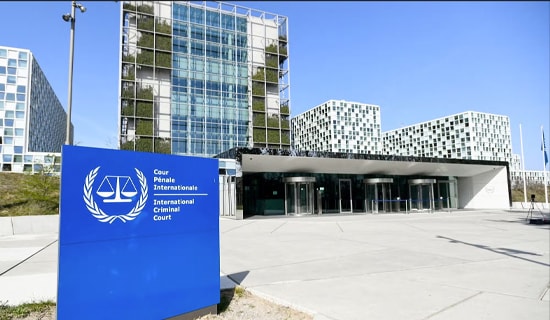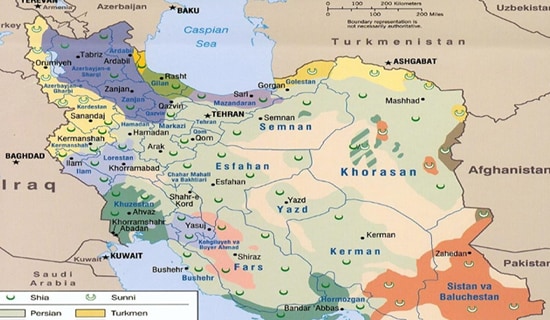In January 2006, the Austrian-Iraqi Association for Development held its first conference on extremism and terrorism around the world, in Vienna. The conference was attended by Arab, Muslim and European researchers, intellectuals and diplomats. In the closing statement, the participants made the following recommendations: to present the humane and rational side of Islam which calls for co-existence and acceptance of the other; to condemn all forms of violence and terrorism; to promote dialogue and cooperation among all the world's cultures; and to call upon religious scholars to halt the spread of extremism. The participants also emphasized the Palestinian people's right to an independent state, and called to consolidate Iraqi national unity based on citizenship, democracy, and peaceful co-existence between all sectors of Iraqi society, while preserving the country's Arab and Islamic character. [1]
Dr. Kamel Al-Najjar, a reformist who writes on the reformist websites www.kitabat.com and www.elaph.com, expressed reservations regarding the validity of these recommendations. [2]
The following are excerpts from his article:
"Islam was Tolerant Only During the Mecca Period, When it was Weak"
"The phenomenon of Arab and Islamic conferences has come to dominate activities in the Arab and Muslim world almost completely, especially since the tragedy of September 11, 2001 in the U.S... Experience teaches us that those who talk a lot do little, while those who act do not talk. I hope that the conference held by the Austrian-Iraqi Association for Development is not an Islamic conference of that sort, but a look at its recommendations does not inspire optimism...
"The conference participants did not bother to explain what the humane side of Islam is. When was Islam humane, and when did it respect others and call for co-existence? Anyone who studies Islamic history discovers that Islam was tolerant only during the Mecca period, when it was weak. This is the period in which the tolerant verses were revealed, such as the verses... 'You have your religion and I have my religion [Koran 109:6]' and 'Call to the way of your Lord with wisdom and goodly preaching, and reason with them in the best ways [16:125].'...
"Later, the Prophet emigrated to the city of Al-Medina, and the first Koranic sura revealed to him there - the sura of Al-Baqara - starts with a rejection of the other... Later [verses] call to fight anyone who does not convert to Islam: 'And kill them wherever you find them, and drive them out from whence they drove you out [2:191]'... Subsequently, the sura of Al-Tawba was revealed, and the 'verse of the sword': 'So when the sacred months have passed, then slay the idolaters wherever you find them, and take them captive and besiege them and lie in wait for them in every ambush [9:5]'... The 'verse of the sword' and all the [other] warlike verses of the Al-Medina period were revealed later than the verses of the Mecca period, and as the newer verses, they [come to] replace the Mecca verses. According to the religious scholars, the 'verse of the sword' abrogates at least 120 tolerant verses. So where is the tolerant side of Islam?...
"If we put aside the theoretical statements of the Koran and the hadith, and examine the actions of the Prophet and his companions... will we find anything that can be regarded as tolerance and acceptance of the other? The Prophet, after all, drove the Jews out of the Arab peninsula and made raids on the Arab tribes so that they would convert out of fear.
"[The First Caliph] Abu Bakr fought against the tribes who abandoned Islam, and [the Second Caliph] Omar [bin Al-Khattab] imposed his famous contract on the Christians, which forced them to cut their hair and wear special garments so they would be easily recognizable, and forbade them to ring their church bells. Islamic conquests of non-Muslim [lands] continued until the time of the Ottoman Caliphate during the 15th century, and even later. Can we find the radiant face of Islam in any of these statements or actions?"
"Violence is Rooted [in Islam] From its Very Inception"
Regarding the recommendation to condemn all forms of violence and terrorism, Al-Najjar wrote: "The problem with Islam is that violence is rooted in it from its very inception. Islam commands beating a 10-year-old child if he does not pray regularly. Islam permits beating a woman if she does not obey her husband...
"The [Islamic] states terrorize non-Muslim minorities, as occurs in Egypt. There is also the terrorism of the religious clerics... who carry a stick to beat women on their legs if any part of the leg is showing, and to beat the men in the marketplace on Friday so they hurry up and get to the mosque. There is the terrorism of religious groups like the Muslim Brotherhood, the Taliban, the Shi'ite groups in Basra, and the Sunni groups in Falluja which burned down shops selling computer diskettes and shops selling wine... Every day, we encounter the ideological terrorism of Al-Azhar [University] and other religious institutions, which ban books, newspapers and movies that do not conform to their views, and issue fatwas accusing Muslim intellectuals of heresy..."
"How Can We Call for Co-Existence Between Religions When the Religious Scholars... Say Every Day That the Bible and New Testament are Falsified, That Christians are Polytheists... and That Jews are the Descendants of Apes and Pigs?"
Al-Najjar next refers to the recommendation that calls for cooperation between the world's cultures: "How can we call for co-existence between religions when the religious scholars of Al-Azhar, Najaf, and Qom say every day that the Bible and the New Testament are falsified, that Christians are polytheists because they worship the Trinity, and that Jews are the descendants of apes and pigs? [When] every Friday, the [Muslim] worshipers call upon Allah to eradicate the Jews, and when the Muslims ridicule the Hindus for worshiping a cow? Who are those who [supposedly] call for [dialogue]? Are they religious scholars who believe in the superiority of Islam?..."
Regarding the recommendation to recognize the Palestinians' right to establish an independent state based on U.N. resolutions, Al-Najjar said: "The hostility that both sides have instilled in their children will not allow them to co-exist peacefully in the near future. As long as there are religious scholars like Sheikh Al-Qaradhawi who permit Palestinian youths to blow themselves up among Israeli civilians, [and as long as there are] religious scholars and sheikhs from Hamas who recruit and train these youths, there is no use in emphasizing the need to establish a Palestinian state based on international resolutions."
About the recommendation to consolidate Iraqi national unity while preserving the Arab and Islamic character of Iraq, Al-Najjar wrote: "The homeland has no religion. Faith belongs to Allah and the homeland belongs to all [its citizens]. But since Islam does not recognize any other [religion], the conference participants called to preserve the Arab and Islamic character of Iraq. [However, it should be noted that] before it became Arab or Muslim, Iraq was Akkadian, Assyrian, Babylonian, and Christian, and now most of its population is Muslim. So how can we preserve the unity of the homeland and say that it is [only] Islamic and Arab? [Additionally,] which Islam are we referring to [when we characterize Iraq as Islamic]? Shi'ite Islam and the rule of the religious scholars, or Sunni Islam which accuses the Shi'ites of heresy?..."
"Since When are the Muslims a Nation of Peace?"
"Islam includes theoretical principles that the Muslims do not implement in practice. For example [the Koran says in sura 42, verse 38]: 'Those who... conduct their affairs by mutual consultation [shura].' But when the Taliban seized power in order to implement the laws of the Islamic shari'a, they did not come into power by means of shura and did not implement the principle of shura in governing [the country]. When Al-Turabi and Al-Bashir took over Sudan in the name of Islam, they [also] did not come into power by means of shura, and did not implement [this principle]. In the Gulf states, power is inherited, and not gained by means of shura...
"The Muslims are always boasting groundlessly of what they do not have, and claiming that Islam has [characteristics] that it [actually] lacks. Mr. Khaled Mash'al, head of the Hamas political bureau, said in Damascus: 'Muslims are the nation of peace, and they extend their hand to anyone who wants to make peace.' Since when are the Muslims a nation of peace? Who spilled rivers of blood in Asia Minor, conquering its cities and enslaving its people?... Who conquered Spain and North Africa?
"If the Muslims are Serious About Presenting the Radiant Face of Islam, They Must Drop This False, Hollow Arrogance and Acknowledge Their Dark Past and Even Darker Present"
"If the Muslims are serious about presenting the radiant face of Islam, they must drop this false, hollow arrogance, and acknowledge their dark past and their even darker present. They must establish a global judiciary council whose function will be to punish any sheikh that issues a fatwa encouraging or permitting violence - whether physical or ideological... They must also re-interpret the Koran, putting the warlike verses - the verse of the sword and similar hadiths - in historical perspective as verses that are no longer valid... Perhaps they should take an example from those who follow the Koran alone and do away with all the hadiths and with the sunna..."
[1] For the full text of the closing statement in Arabic, see the website of the Austrian-Iraqi Association for Development: http://www.aiad.at/Arabic/viewarticle.php?id=news_austria-20060202-39.
[2] http://www.kitabat.com/i12887.htm, February 3, 2006. For further criticism of Arab conferences by Dr. Al-Najjar, see MEMRI Special Dispatch No. 721, "International Islamic Conference: Genuine Call for Tolerance or Reiteration of Hollow Slogans?" May 25, 2004, International Islamic Conference: Genuine Call for Tolerance or Reiteration of Hollow Slogans?.








